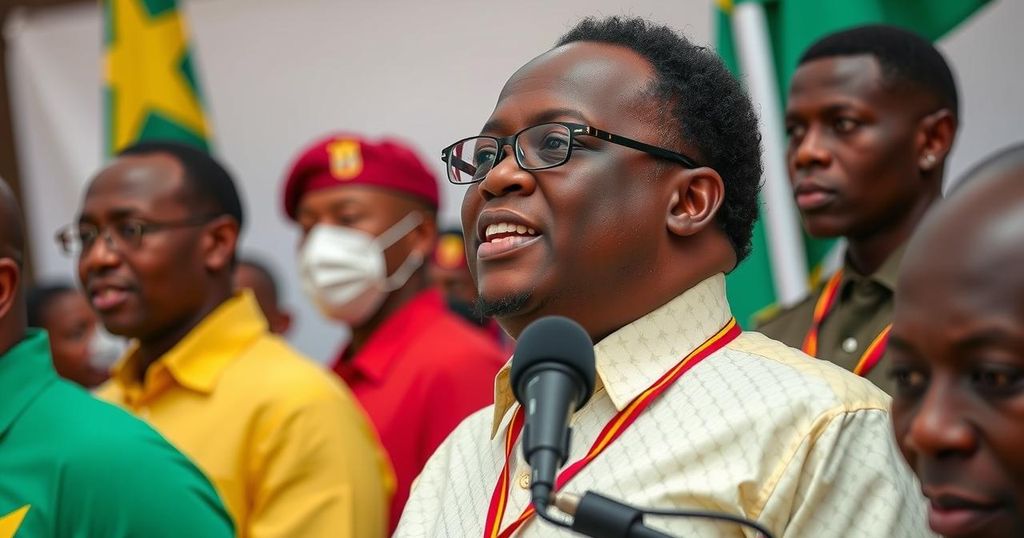World news
2024 ELECTIONS, AFRICA, ALI BONGO ONDIMBA, BILLBOARD, BR, BRICE OLIGUI NGUEMA, COMMITTEE FOR THE TRANSITION AND RESTORATION OF INSTITUTIONS, CORRUPTION, CT, ELECTIONS, GABON, INTERIOR MINISTRY, LIBREVILLE, NATIONAL ASSEMBLY, OLIGUI, POLITICS, UNION NEWSPAPER, VOTER TURNOUT
Marcus Chen
0 Comments
Gabon Votes Overwhelmingly for New Constitution Amid Controversy
Provisional results show that Gabon’s new constitution was backed by 91.8% of voters in a recent referendum. The constitution introduces presidential term limits and prohibits dynastic succession. Turnout was reported at 53.54%. The ruling junta, which came to power via a coup, is criticized for its heavy influence on the electoral process.
Gabon’s military regime has reported that a new constitution has received overwhelming support from voters in a recent referendum. According to provisional results released on Sunday, about 91.8 percent of the approximately 860,000 registered voters favored the new constitutional changes, which promise a maximum of two seven-year presidential terms and prohibit dynastic transfer of power. The electoral process saw a turnout of 53.54 percent, though this was lower than initial estimates. The junta, which assumed power in August 2022, dominated the campaigning with extensive outreach via television, radio, and social media, urging citizens to cast their votes. Transitional president Brice Oligui Nguema lauded the vote as a pivotal moment for the country.
The political landscape in Gabon shifted significantly after the military took control from former president Ali Bongo Ondimba, who had faced accusations of fraud and extensive corruption during his long rule. The new constitution represents the military’s attempt to establish a framework that addresses longstanding governance issues, aiming to limit presidential power and prevent hereditary succession. The referendum’s results signal public sentiment towards these changes amid ongoing concerns over unemployment and governance. Observers view this process critically, questioning whether the new provisions favor the current leadership in the long term.
The provisional approval of Gabon’s new constitution reflects significant public backing for political reform in the wake of a military coup. While the regime has framed this as a move toward greater transparency and democratic governance, skepticism remains regarding the military’s ultimate intentions. The upcoming presidential elections in 2025 will be crucial in determining whether these changes translate into genuine democratic progress or merely serve to entrench existing power structures.
Original Source: www.tiogapublishing.com




Post Comment